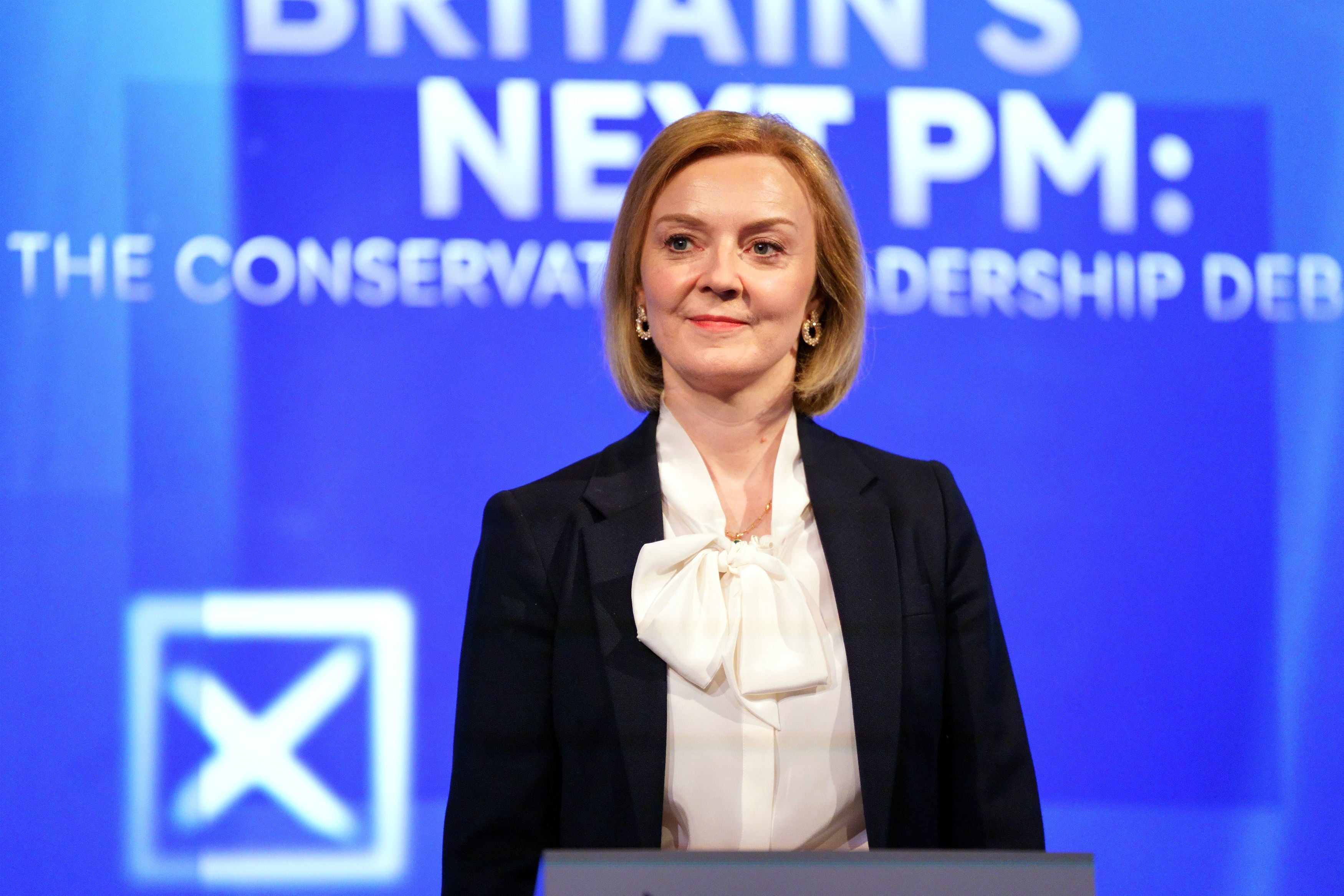Liz Truss vows biggest change in economic policy in decades if she becomes PM
Foreign secretary wants ‘bold new approach’ in policies

Your support helps us to tell the story
From reproductive rights to climate change to Big Tech, The Independent is on the ground when the story is developing. Whether it's investigating the financials of Elon Musk's pro-Trump PAC or producing our latest documentary, 'The A Word', which shines a light on the American women fighting for reproductive rights, we know how important it is to parse out the facts from the messaging.
At such a critical moment in US history, we need reporters on the ground. Your donation allows us to keep sending journalists to speak to both sides of the story.
The Independent is trusted by Americans across the entire political spectrum. And unlike many other quality news outlets, we choose not to lock Americans out of our reporting and analysis with paywalls. We believe quality journalism should be available to everyone, paid for by those who can afford it.
Your support makes all the difference.Liz Truss has vowed to bring about the biggest economic change the UK has seen in 30 years in her bid to become the next prime minister.
The foreign secretary said she wants a “bold new approach” to confront the economic crisis the country is facing.
During the leadership campaign, Ms Truss has pledged a radical overhaul of the taxation system if she gets into Downing Street that would include ditching green levies on energy bills.
In an interview with the Sunday Telegraph, Ms Truss said: “What I want to achieve is the biggest change in our economic policy for 30 years. That’s the scale of the challenge we face.”
She said she would seek to abolish “Stalinist” housing targets – unpopular with some Tory MPs – if she was elected.
“I want to abolish the top down Whitehall inspired Stalinist housing targets. I think that’s the wrong way to generate economic growth,” she said. “The best way to generate economic growth is bottom up by creating those incentives for investment through the tax system, simplifying regulations.”
Her plan also consists of overhauling the EU’s Solvency II rules which are limiting to insurers, and to liberate “more of our pension funds to be able to invest in high tech startups”.
She told the newspaper: “There is a tendency in Whitehall to be cautious, to be risk-averse and to be slow. But we cannot afford to wait any longer. There is an imperative that we get on with delivering those post-Brexit opportunities.”
Meanwhile, Rishi Sunak – who branded his rivals’ plans for tax cuts a “fairytale” in the first leadership debate – has vowed to rip up remaining EU red tape if elected the new Tory leader.
It comes as a number of strongly pro-Brexit MPs are backing other candidates – including Ms Truss, even though she backed Remain in the 2016 referendum.
Mr Sunak said he would “remove the burdens” of EU data laws that he argued are “stopping British tech companies from innovating, and public services from being able to share data to clamp down on crime”.
The former chancellor added that he would also “speed up our clinical trials approval process” by creating a single approval service, pointing to the success of the UK’s Covid vaccine rollout.
Mr Sunak said: “In 2016, I was told by my party leadership that if I backed Brexit, my political career would end before it had even begun. I backed Brexit regardless because I knew it was the right thing for the country.
“We need to capitalise on these opportunities by ditching the mass of unnecessary regulations and low-growth mentality we’ve inherited from the EU.”
The former chancellor topped the first two rounds of voting by MPs, although he still remains short of the 120 votes needed to guarantee him a place in the final run-off ballot of party members.
International trade minister Penny Mordaunt remains in second place while Ms Truss is third.
Join our commenting forum
Join thought-provoking conversations, follow other Independent readers and see their replies
Comments